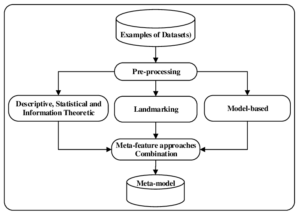Naira Weakens Against Dollar Hits N1600 in Parallel Market

Naira Weakens Against Dollar Hits N1600 in Parallel Market
Naira Weakens Against Dollar Hits N1600 in Parallel Market – The devaluation of the Naira persisted on February 15, with its value plummeting to N1,610 against the United States Dollar in the parallel market.
Despite a slight recovery at the Nigeria Autonomous Foreign Exchange (NAFEX) window, where it rose from a low of N1,515.28 to N1,498.25 by the close of business, the parallel market saw a continuous decline. Transactions unfolded at rates ranging between N1,610 and N1,615 to the Dollar on Thursday, a stark contrast to the N1,550 rate observed the previous day.
According to LIB, the Naira’s downward spiral has become a pressing concern, eluding numerous interventions by the Central Bank of Nigeria (CBN). This persistent devaluation is exacerbating the country’s cost of living crisis and contributing to inflationary pressures.
Despite efforts to stabilize the currency, the Naira’s struggle against the Dollar reflects the challenges faced by the Nigerian economy, necessitating a comprehensive and sustained approach to address the root causes of its depreciation.
SEE ALSO: UK and Nigeria Set to Sign Agreement Allowing British Lawyers in Nigeria
What we may be expecting
Predicting currency movements is inherently challenging due to the multitude of factors influencing exchange rates, including economic conditions, government policies, global events, and market sentiments.
However, considering the ongoing challenges faced by the Naira and broader economic trends, we can outline a potential scenario for the currency before the end of 2024.
- Central Bank Interventions: The Central Bank of Nigeria (CBN) is likely to continue its efforts to stabilize the Naira. Interventions may include adjusting interest rates, implementing foreign exchange controls, and employing monetary policy tools to curb inflation and bolster the currency.
- Economic Reforms: The government might implement structural reforms to address underlying issues affecting the economy. Policies aimed at diversifying revenue sources, improving infrastructure, and fostering a more business-friendly environment could contribute to economic stability and, subsequently, currency strength.
- Global Economic Trends: The Naira’s performance will be influenced by global economic conditions. If there is a global economic recovery and increased demand for commodities, Nigeria, being a major oil exporter, may benefit, potentially providing support for the Naira.
- Inflation and Cost of Living: The trajectory of inflation will play a crucial role. If inflation is effectively managed, it can contribute to a more stable currency. However, sustained inflationary pressures could further erode the Naira’s value and exacerbate the cost of living crisis.
- Political Stability: Political stability is vital for economic confidence. Any signs of political instability or policy uncertainty can negatively impact investor confidence and, consequently, the value of the Naira.
- External Debt and Reserves: The management of external debt and foreign exchange reserves will be crucial. Adequate reserves can provide a buffer against external shocks and support the Naira.
Considering these factors, a positive scenario would involve successful economic reforms, increased investor confidence, and prudent monetary policies that help stabilize the Naira. Conversely, persistent challenges, such as inflation, political instability, or global economic downturns, could lead to further depreciation.
It’s important to note that economic conditions are dynamic, and unforeseen events can significantly impact currency movements. Therefore, this analysis provides a broad overview based on existing trends but doesn’t guarantee specific outcomes for the Naira before the end of 2024.














